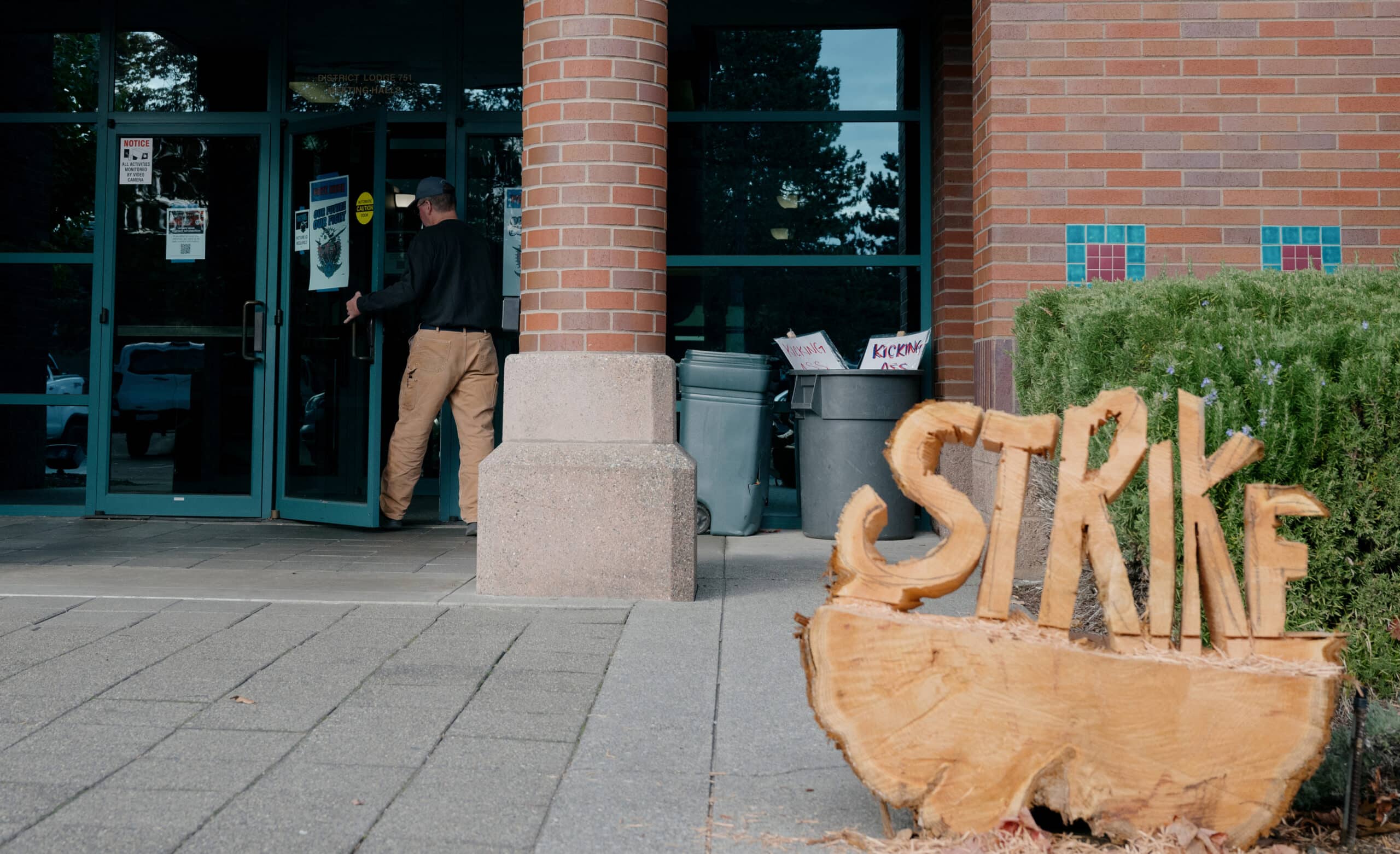Boeing workers reject contract, extend strike — union

A “Strike” sign carved in a log is seen as a Boeing Machinist Union member enters the IAM District 751 Union Hall to vote on the latest contract presented by the airline giant after weeks of striking, in Seattle, Washington October 23, 2024. – Boeing reported a whopping $6.2 billion quarterly loss Wednesday as a nearly six-week labor strike weighed on its commercial plane division and costly problems dragged down its defense and space business.
The embattled aviation giant, which has been under scrutiny from regulators following safety problems, will learn later in the day if Seattle-area employees will accept the company’s latest proposal, ending the bruising work stoppage. (Photo by Grant Hindsley / AFP)
New York, United States — Boeing workers in the Seattle region decisively rejected the US aerospace giant’s latest contract offer on Wednesday, extending their nearly six-week strike.
Almost two-thirds — 64 percent — of the members of the International Association of Machinists and Aerospace Workers District 751 rejected the contract, the union said on X.
The latest Boeing offer had included a 35 percent wage hike, but did not reinstate a pension plan sought by many employees.
READ: Boeing reports $6.2B loss as it awaits vote on end to strike
Some 33,000 hourly workers with the IAM have been on the picket line since September 13, when workers overwhelmingly rejected a Boeing proposal for a new four-year contract to replace the expiring pact.
Article continues after this advertisement
The strike has halted activity at two Seattle-area factories that assemble the 737 MAX and 777.
Article continues after this advertisement
Workers had sought a 40 percent wage increase to make up for years of tepid salary growth that have not kept pace with inflation and that employees complain leave them unable to afford living in one of the most costly regions of the United States.
“After 10 years of sacrifices, we still have ground to make up, and we’re hopeful to do so by resuming negotiations promptly,” Jon Holden, president of the Seattle union, said in a statement.
“This is workplace democracy –- and also clear evidence that there are consequences when a company mistreats its workers year after year,” Holden said.
“Ten years of holding workers back unfortunately cannot be undone quickly or easily, but we will continue to negotiate in good faith until we have made gains that workers feel adequately make up for what the company took from them in the past,” he added.
A Boeing spokeswoman said Wednesday night the company had no comment on the vote.
The extension of the strike adds to the troubles facing Boeing and its new CEO Kelly Ortberg, who earlier Wednesday expressed measured optimism the latest contract would be ratified.
“We have been feverishly working to find a solution that works for the company and meets our employees’ needs,” Ortberg said in a message to employees accompanying third-quarter results.
Boeing reported a whopping $6.2 billion loss due in part to added costs connected to the strike and to problems with its troubled defense and space business.
READ: Boeing names new CEO as it reports hefty loss
The embattled aviation giant has also been under regulatory scrutiny following safety problems.
To strengthen liquidity, Boeing has announced plans to raise up to $15 billion in securities. But Boeing executives Wednesday declined to elaborate on the timing of the offering, or the particular investment vehicles that would be employed.
Even before the strike, Boeing had slowed production in its commercial plane division to ensure greater attention to safety protocols after a 737 MAX flown by Alaska Airlines was forced to make an emergency landing in January when a fuselage panel blew out mid-flight.
The near-catastrophe — coming after two fatal 737 MAX crashes in 2018 and 2019 that claimed 346 lives — put Boeing under intense regulatory oversight once again.